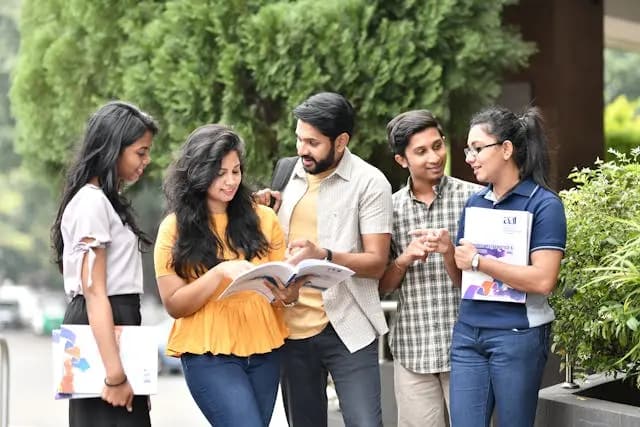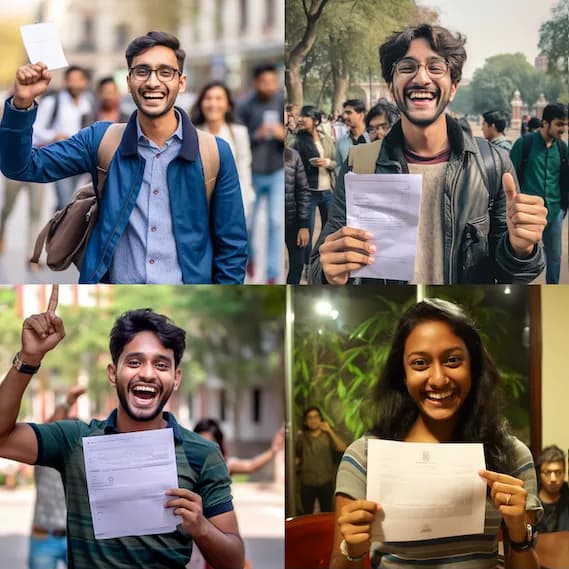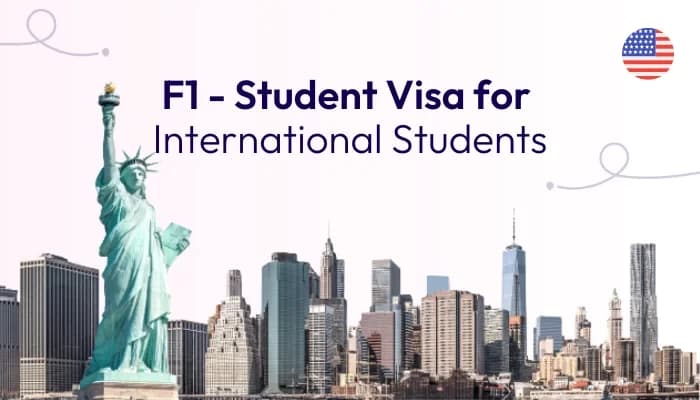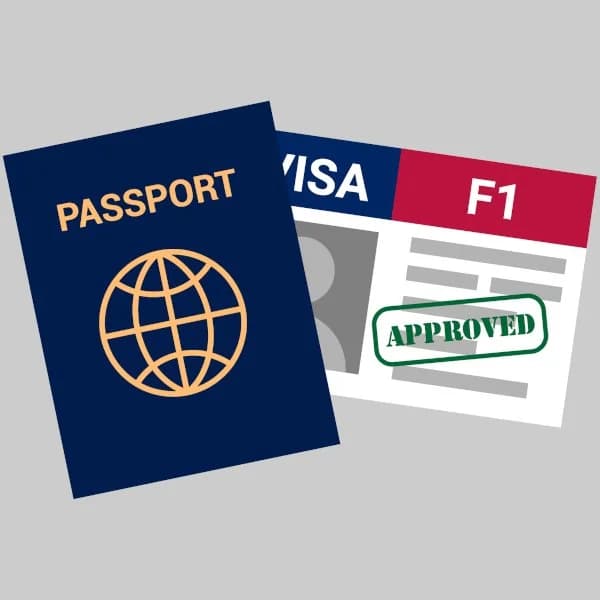5 Reasons why Indian Students F1 Visa is Refused (and 5 Tips for Success)

Key Highlights
- Insufficient financial proof to cover all expenses during studies.
- Weak ties to India, including family, property, or job prospects.
- Incomplete or inconsistent documents.
- Poor grades or unclear study plans.
- Concerns about immigration intentions.
Getting an F1 visa is a big deal for Indian students who want to study in the U.S. But sometimes, things don't go as planned, and the visa gets refused. This can be really stressful. So, why does it happen, and how can you avoid it? Let’s break it down into five common reasons why Indian students face F1 visa refusals and how you can improve your chances of getting approved.
1. Not Enough Money to Show
One of the main reasons visas get refused is because students can’t show they have enough money to cover all their expenses in the U.S. The U.S. government wants to make sure you can pay for your tuition, living costs, and other expenses without struggling. If you can’t prove that, your visa might get rejected.
Example: Imagine you show a bank statement with just enough money to cover your first semester. The visa officer might think you haven’t planned well for the rest of your studies, and this could lead to a refusal. Instead, you should provide several documents like bank statements, scholarship letters, and other proof showing you have enough funds for your entire course.
2. Weak Ties to India
Visa officers worry that students might not return to India after finishing their studies. If you can’t show strong connections to your home country—like family, property, or a job offer—your visa might get denied. They need to be sure you’ll go back home once your studies are done.
Example: If you focus too much on wanting to work in the U.S. after graduation without mentioning your plans to return to India, it could raise concerns. To avoid this, talk about your family, future job opportunities in India, or any other commitments that show you’re likely to come back.
3. Incomplete or Confusing Documents
The F1 visa process involves a lot of paperwork. If there are mistakes or missing documents, it can lead to a denial. This could be anything from errors in your forms to differences between what’s in your documents and what you say during the interview. The visa officer needs to trust that everything in your paperwork is accurate.
Example: Let’s say your visa application form lists one amount for your available funds, but your bank statements show something different. This might make the officer suspicious and could lead to a denial. It’s important to check all your documents and make sure everything matches.
4. Poor Grades or Unclear Study Plans
Visa officers also look at your academic record and reasons for choosing a specific course or university in the U.S. If your grades are low or your choice of study doesn’t match your previous education or career goals, this could be a problem. The U.S. wants students who are serious about their education and have a clear plan.
Example: If you have a bachelor’s degree in arts but apply for a master’s in computer science without explaining why you’re switching fields, the visa officer might question your intentions. Make sure to clearly explain why you chose your program and how it fits into your career plans.
5. Concerns About Immigration Intentions
Your past visa history or intentions for the future can also affect the decision. If you’ve had previous visa refusals, stayed too long in another country, or seem more interested in immigrating than studying, your F1 visa might get denied. The U.S. wants to make sure students are coming to study, not to migrate permanently.
Example: If you’ve applied for a tourist visa before and were refused, and you don’t explain this during your F1 visa interview, the officer might think you’re trying to enter the U.S. for the wrong reasons. It’s important to be honest about your past and clarify your reasons for studying in the U.S.
5 Tips for F1 Visa Interview Success
Now that we know why F1 visas are sometimes refused, let’s look at how you can improve your chances of success.
1. Prepare Strong Financial Documents
Since one of the main reasons for F1 visa refusal is not showing enough money, gather all the financial documents you need to prove you can cover your expenses for the entire time you’ll be studying. This should include bank statements, proof of scholarships, and other financial documents.
Example: During your interview, show a detailed financial plan that covers all your expenses, not just for the first semester but for the entire duration of your studies. This will give the visa officer confidence that you can manage your finances.
2. Show Your Connections to India
To convince the visa officer that you’ll return to India after your studies, highlight your ties to your home country. This could include talking about your family, future job prospects, or any property you own in India.
Example: If you have a job offer in India that starts after your graduation, mention this during your interview. This shows that you have plans to return home.
3. Make Sure Your Documents Are Consistent
Double-check all your documents to ensure they are complete and consistent. Make sure that the information on your visa application form matches what you say in the interview and what’s shown in your financial documents.
Example: If your bank balance changes, provide an explanation and supporting documents. Consistency in your paperwork will build trust with the visa officer.
4. Explain Your Study Goals Clearly
Before your interview, practice explaining why you chose your course and university. Be ready to talk about how this fits into your career plans. This shows that you’re serious about your studies and have a clear direction.
Example: Let’s say you’re going for a master’s in engineering. Explain how this degree will help you become a top engineer in India, and talk about specific opportunities in India where you can apply this knowledge.
5. Be Honest and Open
Finally, honesty is very important. Whether it’s about your previous visa applications, your academic background, or your financial situation, being upfront is always the best approach. If something might raise concerns, address it directly rather than hoping it won’t come up.
Example: If you’ve been denied a visa before, don’t try to hide it. Instead, explain what has changed since then and why you’re a stronger candidate now. Transparency builds trust and shows that you have nothing to hide.
Conclusion
Getting an F1 visa can be tough, but knowing the common mistakes and how to avoid them can really help. By preparing well, showing your ties to India, and clearly explaining your study goals, you can make a strong case to the visa officer. Remember, the key to success is being prepared and honest. Good luck with your F1 visa application!
Have Questions About This Topic?
Join our community to get personalized advice and share experiences with others going through similar visa processes.





